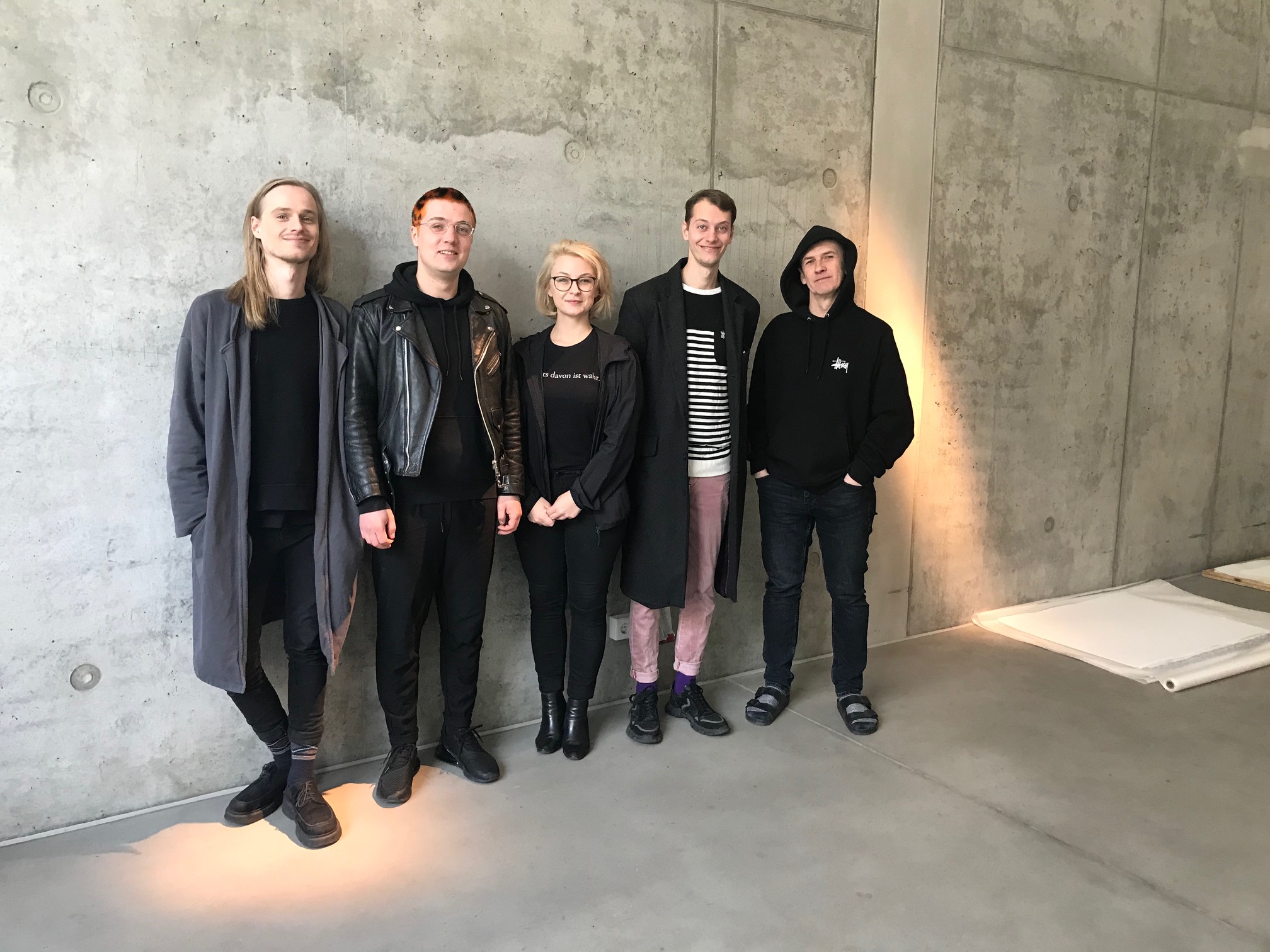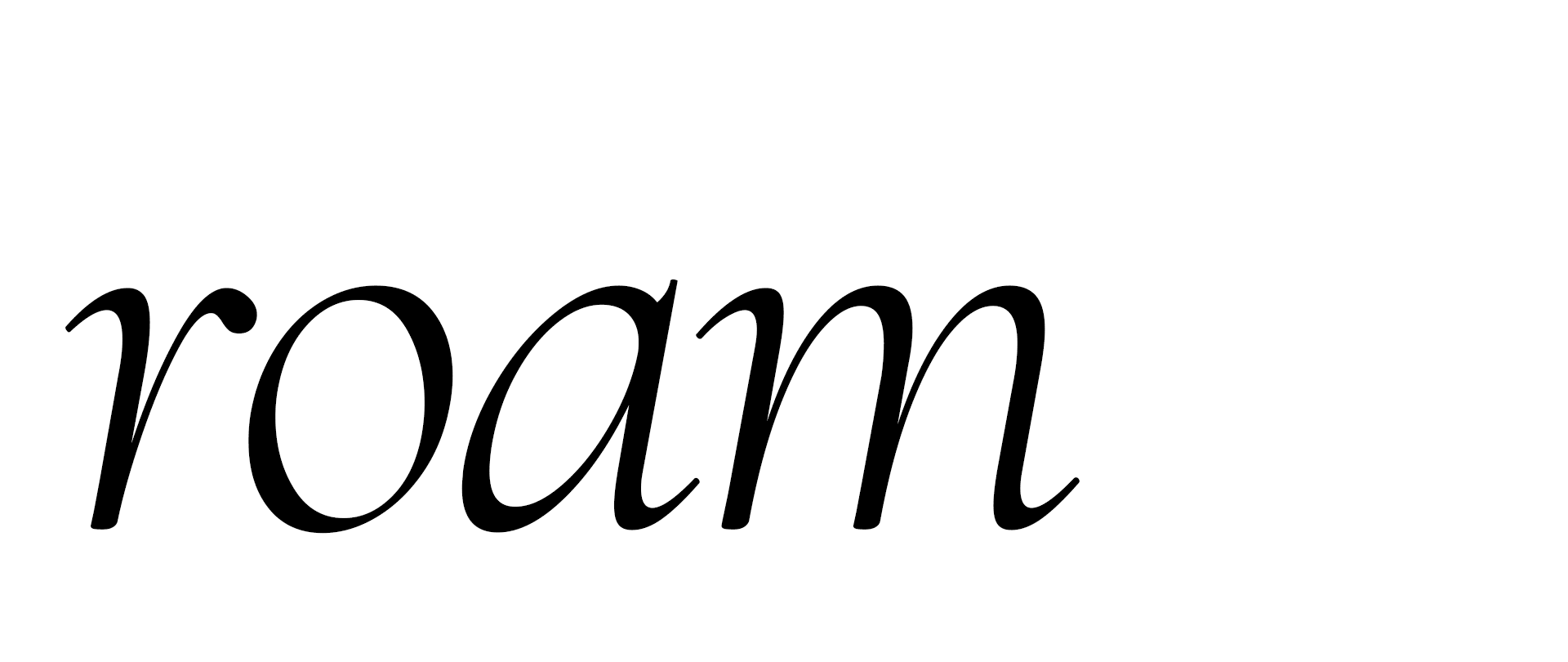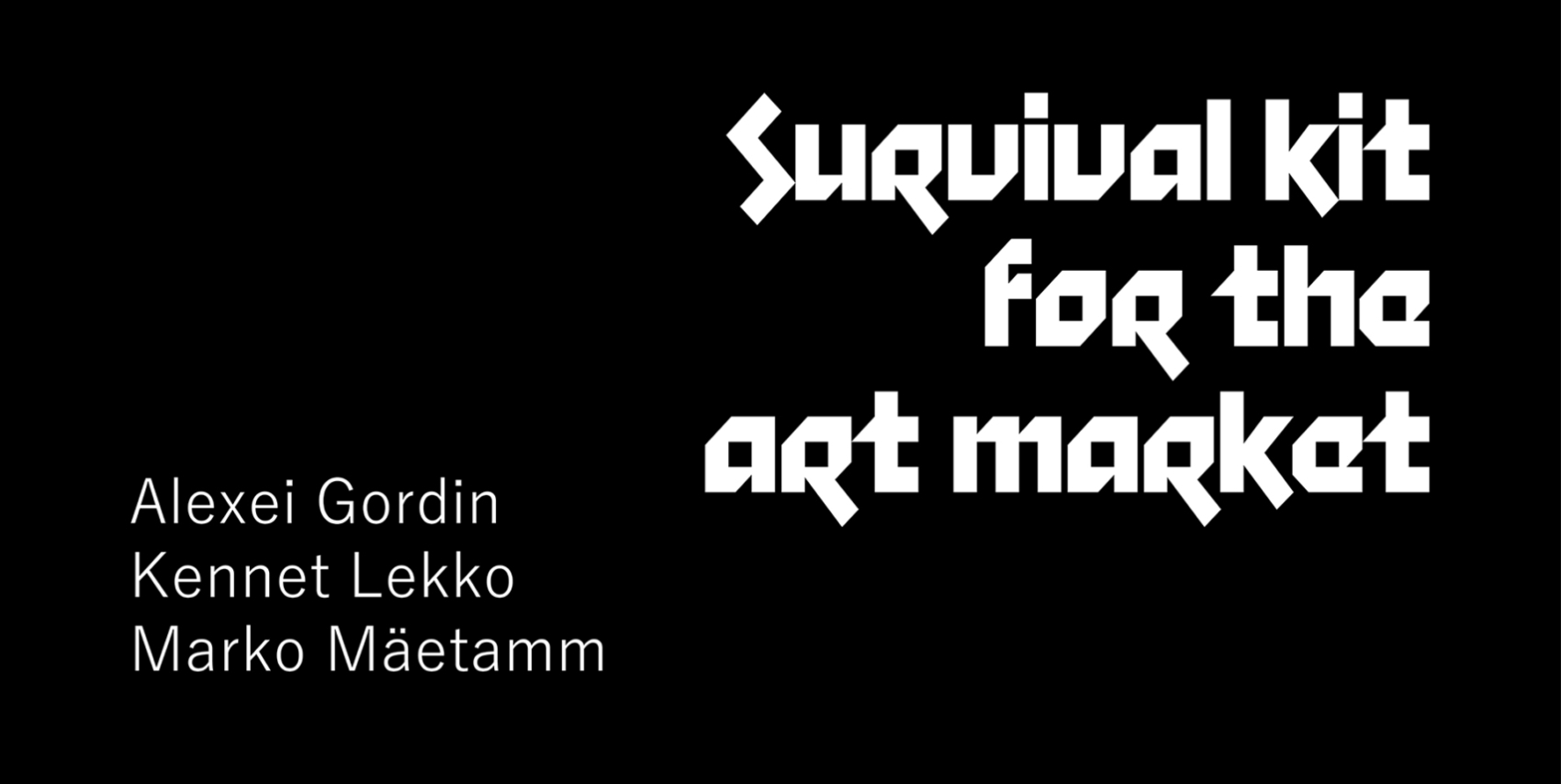
Exhibition: 1 July 2021 – 4 July 2021, 2 – 7 pm (and by appointment)
Opening: 1 July, 7- 10 pm
Artist Talk: 3 July, 7pm
The exhibition called “Survival Kit for the Art Market” presents the works of the first two residency artists at roam – Alexei Gordin and Marko Mäetamm, together with artist Kennet Lekko. The theme of the exhibition focuses on the madness, senselessness and necessity of the existence of the art market and the challenges connected to this capitalist phenomena.
The fact that being an artist nowadays comes with the certainty of an omnipresent struggle is already common knowledge. Capitalism and creativity are in most cases opponents and just weirdly go along with each other. How to be freely creative when the market is asking for another aesthetic? How to maintain a path of authenticity when the gallerist wants a certain topic and size of an artwork? The crisis hit the scene hard but honestly it was shit before – a survival kit for the art market is urgently needed. But this is not a story about victims, it‘s a journey of discovering how to survive within these conditions, without being eaten by expectations, providing what is asked for and dealing with the situation if somebody or something managed to take a bite. Keeping body and soul together is a matter of sharing and communicating. This show invites to a dialog about the shit that exists, the conflicts which result out of this moment and the thoughts we should share.
After the show in Berlin, the exhibition will travel to Kogo Gallery in Tartu, Estonia
Both residency and exhibition supported by Senate Department for Culture and Europe, Cultural Endowment of Estonia, Estonian Embassy in Berlin, Kogo Gallery, Goethe Institute, Rebel Art Management, post-gallery.online and MTÜ Eesti-Saksa Kunstikoostöö
Photos by Andreas Baudisch
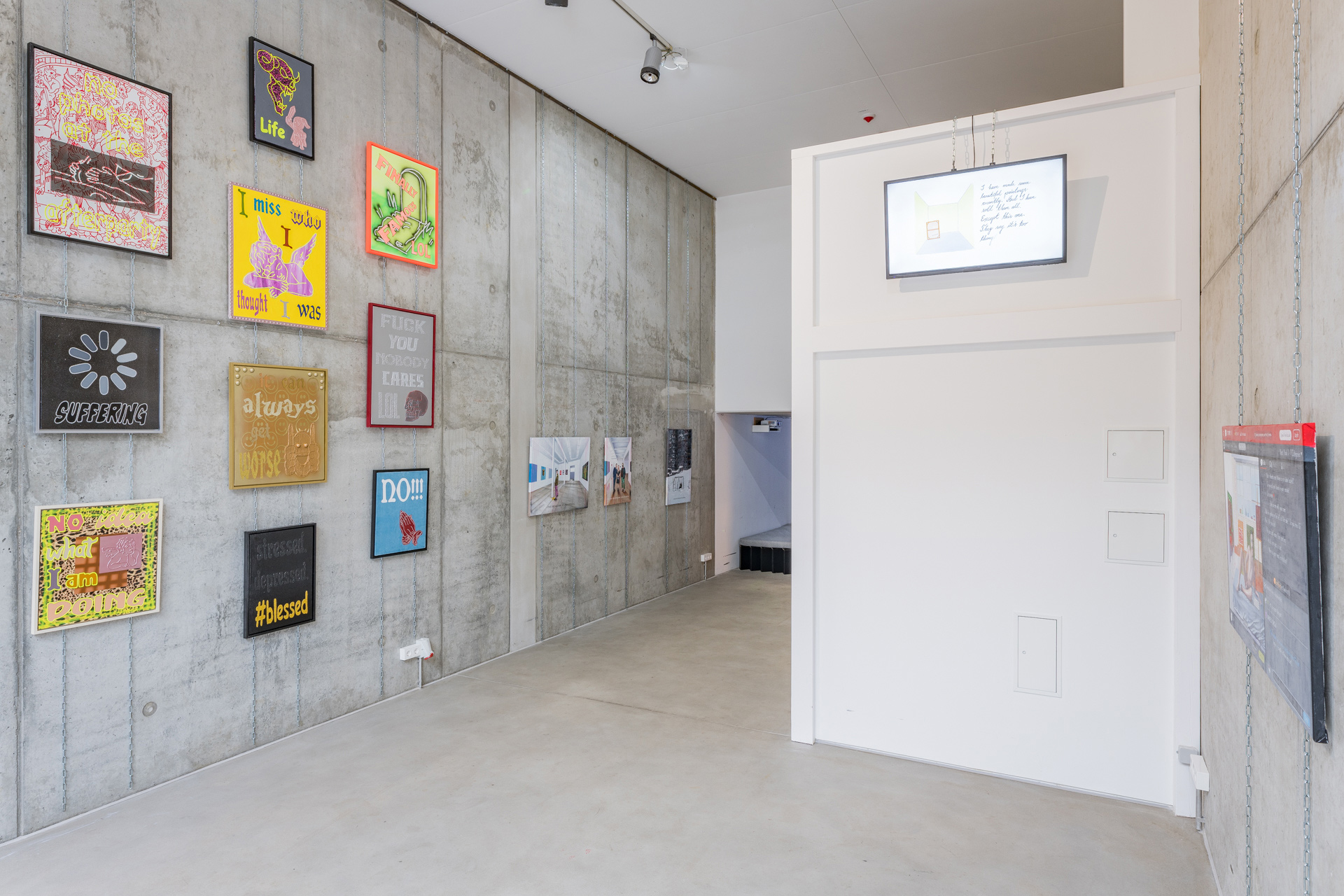
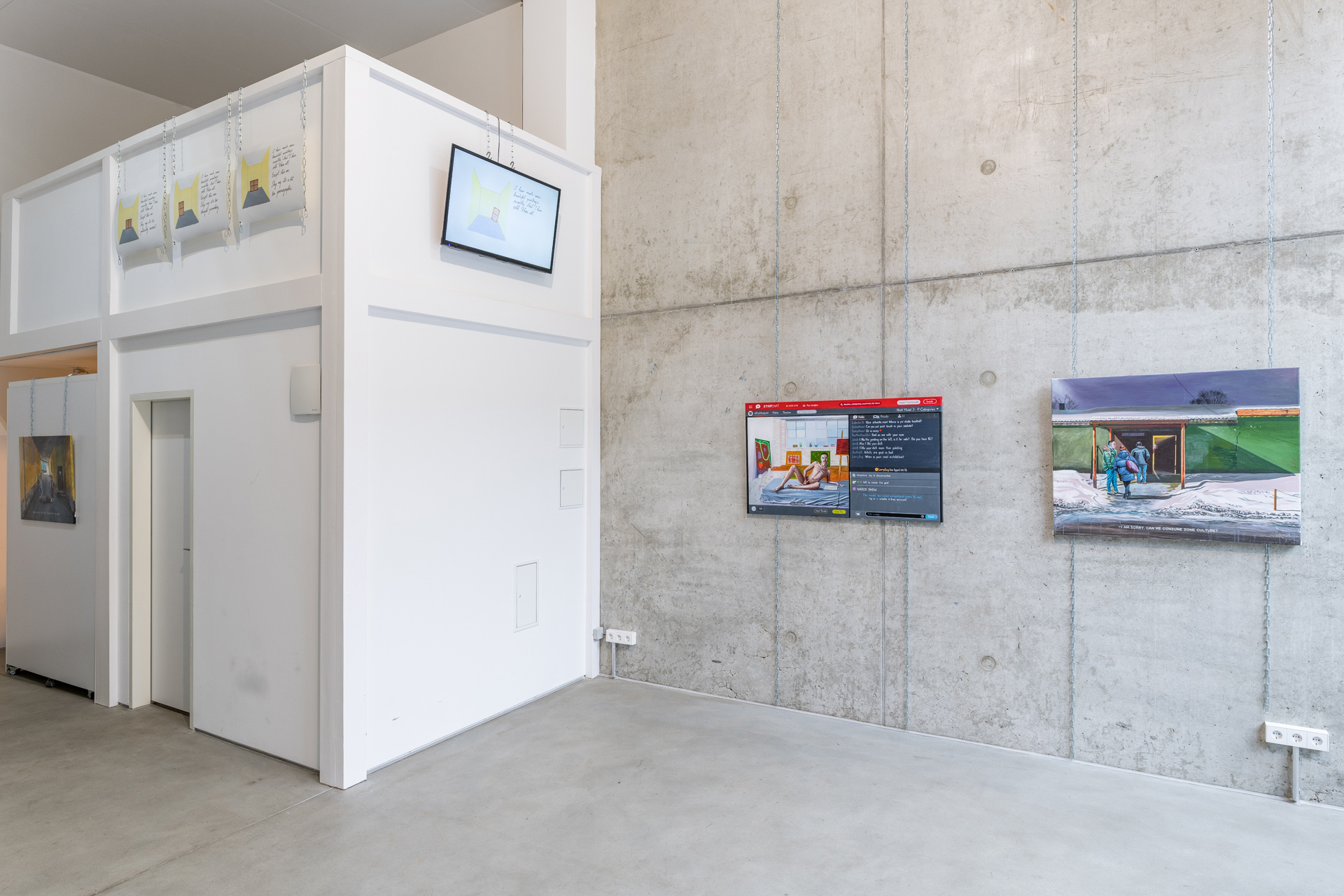

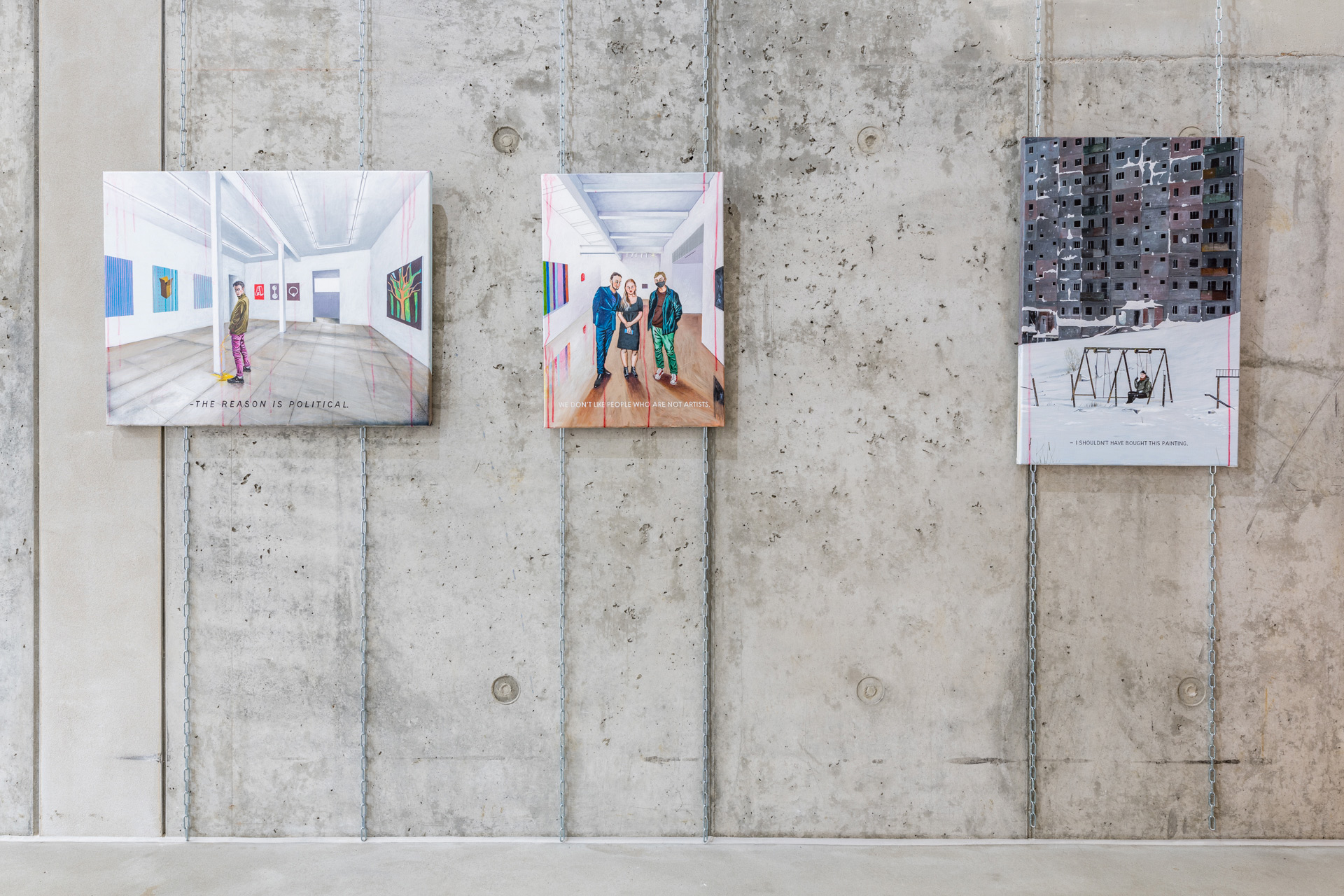
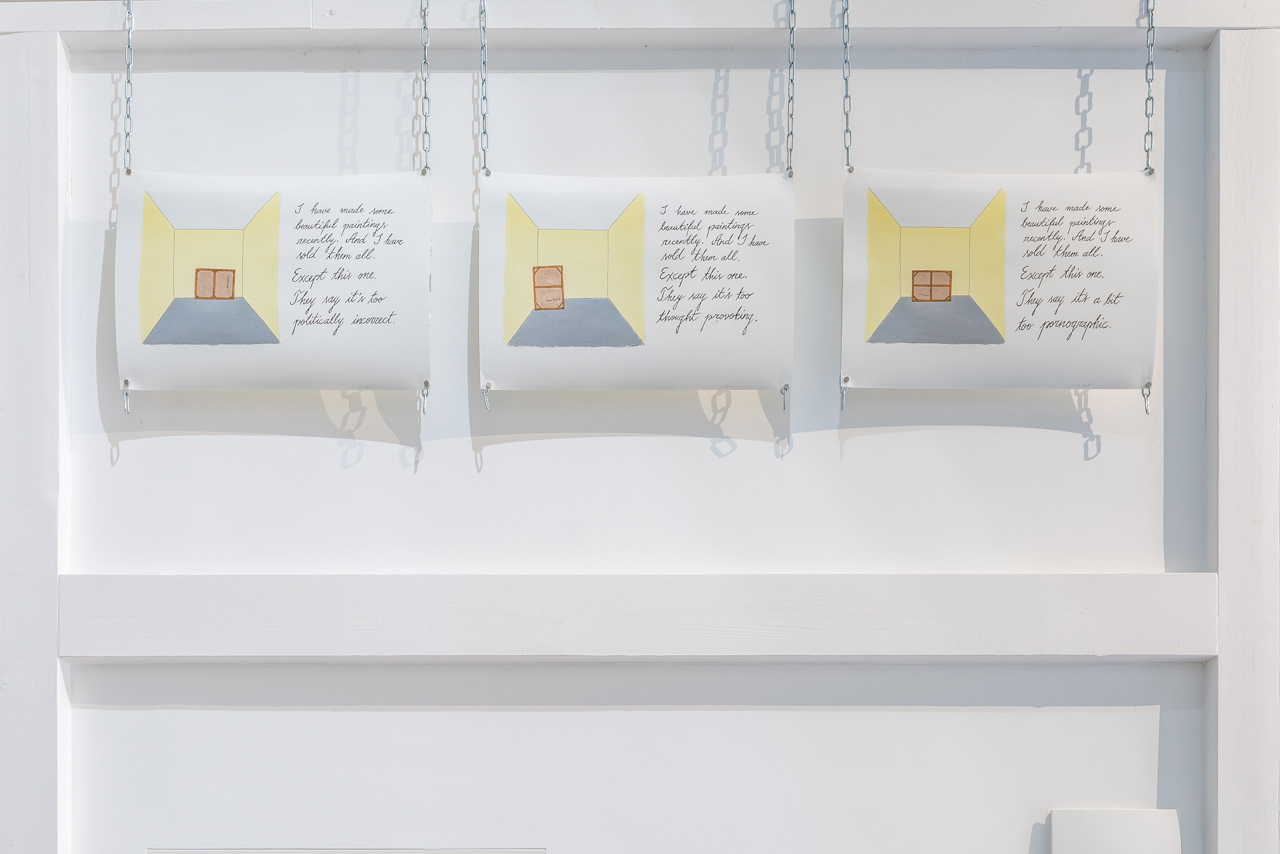
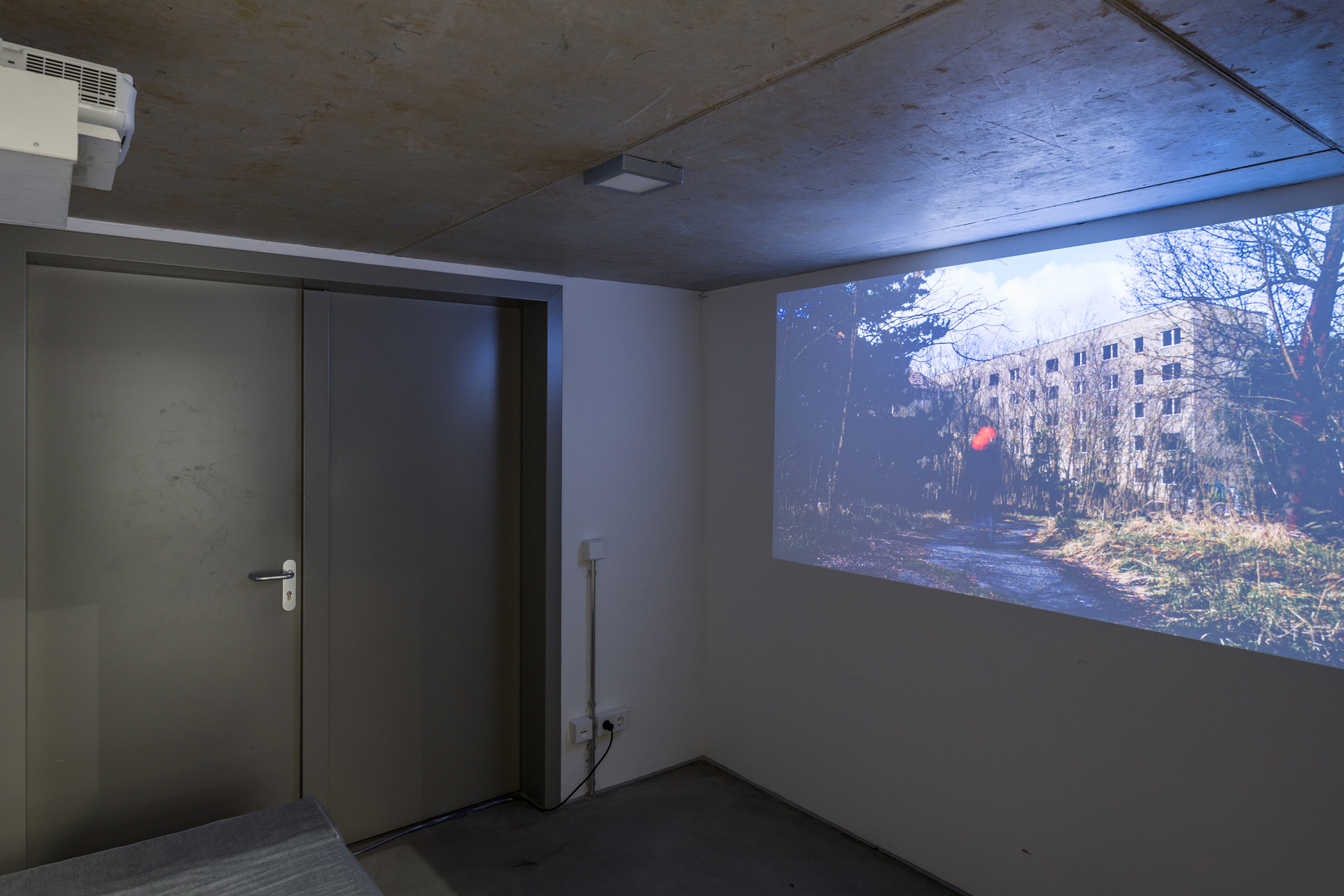
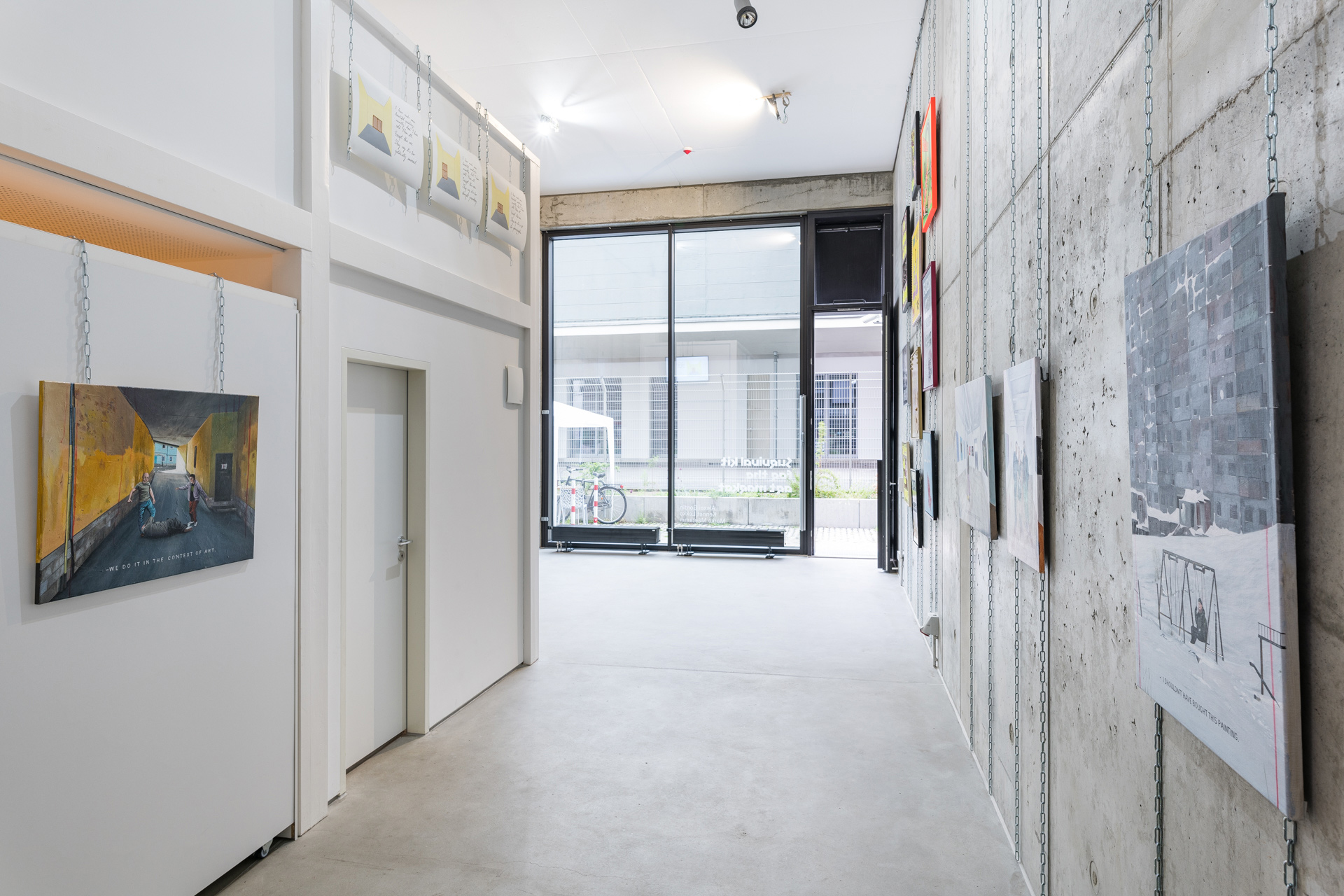
Residency
Alexei Gordin (b. 1989, Tomsk) lives and works in Tallinn. He studied painting in Tallinn and Helsinki. Although having a painter’s background, he works within the medium of drawing, photography, video and performance. The primary subject of his artistic practice is stereotypical thinking and behavior patterns of people in contemporary society. His works are often narrative, covering exciting and irritating situations by picturing the harsh reality of the art world, where the artist is the protagonist. Scenes scattered with black humor deconstruct the image of the professional art world as something elitist and glamorous.
For Gordin, capitalism is nothing but objectifying different aspects of life, exalting commodity into the status of god. He answers to these conditions by visualizing absurd but very possible situations where the artist gets objectified. The situations get drawn from his own fears, displeasures and inner experiences of being a contemporary artist, that intertwine with wider questions of global mass culture and social dysfunctions. Gordin considers painting as an everyday practice which also functions as a surreal diary full of criticism. He speculates on relationships between art making and capital, by juxtaposing these things, new perspectives and behavior patterns can be found.
Gordin’s practice questions painting and its aesthetics. These do not occur as a medium, but as a tool for study, speculation and documentation of wider processes materialized through the prism of the artist’s existence. Gordin focuses on how picture and text can influence public perception through the creation of spontaneous and familiar narratives. His interest in figurative painting can be described as self-irony, an attempt to deconstruct the collective image of the art world.
Marko Mäetamm was born in Viljandi, Estonia in 1965 and now lives and works in Tallinn, Estonia. He studied graphic art at the Estonian Academy of Arts, where he received his B.A. in 1993 and his M.A. in 1995.
Marko Mäetamm’s most often autobiographical art practice focuses on family life and society and explores the grey area between private and public through a variety of media such as photography, sculpture, animations, painting, and text. His work often appears humorous despite its sometimes rather heavy and even dark content. And his stories, very personal and even intimate from the first sight often appear everybody’s stories as they touch some very basic instincts in us, something that is familiar to all of us and so close that we can’t even see it. And sometimes not too comfortable to talk with.
“For me art means communication. I am interested in provoking dialogues and making people to think outside their comfort zones and taboos. My work is about things I am concerned about in this world. It is a mirror of the present time – the only time that really exists,” he says.
Mäetamm’s work has been exhibited at such international venues as Gallery Platan, Budapest, Hungary (2001); la Biennale di Venezia, Italy (2003); Wäinö Aalto Museum, Turku, Finland (2009); Dorsky Gallery Curatorial Programs, New York City (2009); NADA Art Fair, Miami, Florida (2012); Gallery Iragui, Moscow, Russia (2014); and the IKON Gallery, UK (2014). Marko has received numerous awards such as the Kristjan Raud Annual Award, Estonia (2000), the Baltic Assembly Prize for the Arts (2009), and the Annual Award of the Cultural Endowment of Estonia (2011). He was given the Estonian State Decoration, Order of the White Star, V Class in 2008.
He has participated in artists’ residencies at Ville de Paris, Résidences Internationales aux Recollets, Paris, France (2011), the Civitella Ranieri Foundation, Italy (2013), The Fountainhead Residency, Miami, Florida (2014), Christian A. Johnson Endeavor Foundation Artist in Residence in Colgate University, USA (2016), BANFF Centre of Arts and Creativity, Canada (2017)
Mäetamm represented Estonia at the Venice Biennial in 2003 and 2007.
His published books include Our Daddy is a Hunter (2012), Painting and Waiting (2013), The Alphabet of Lies (2014), Tales of Messenger (2017).
